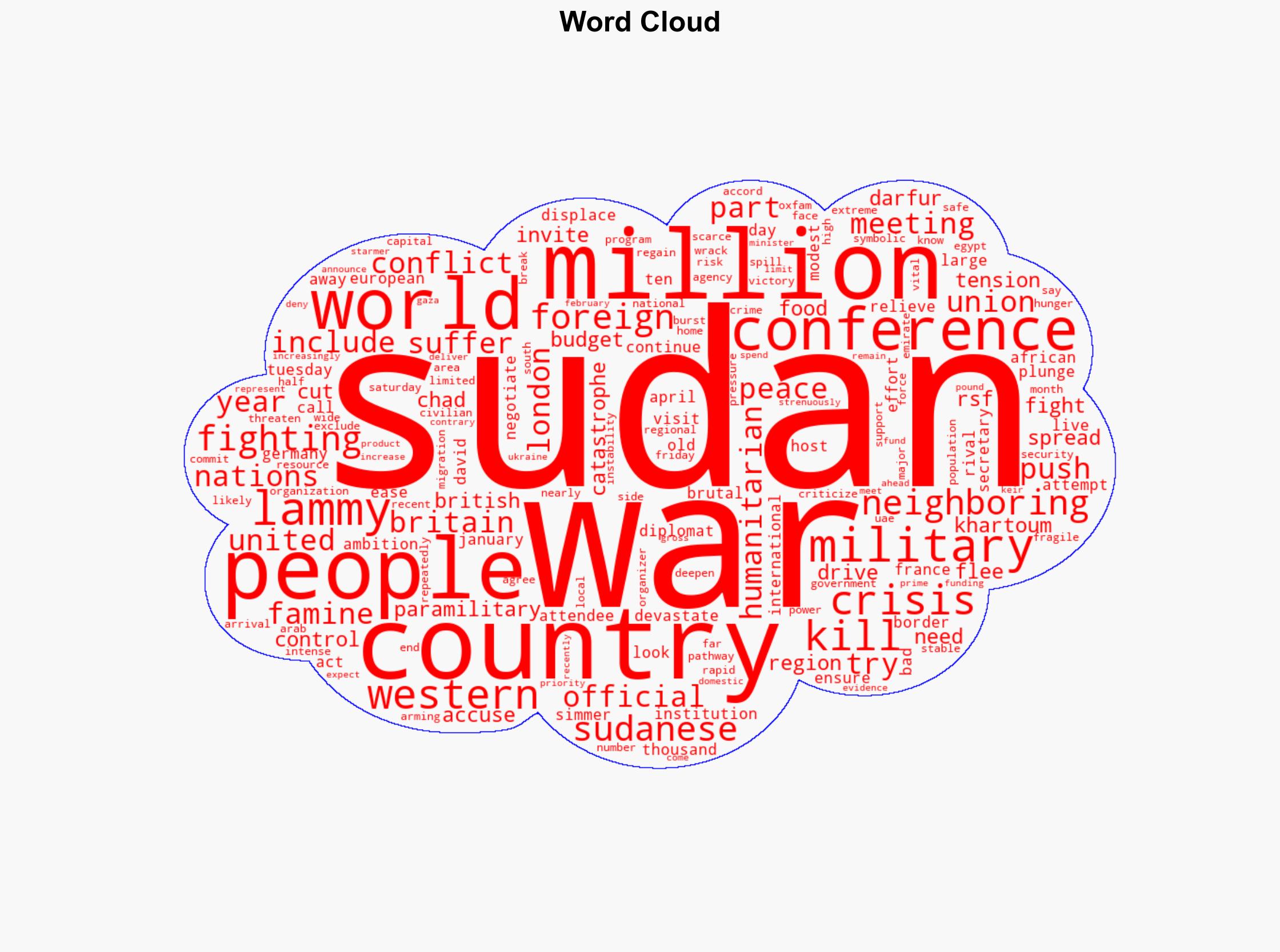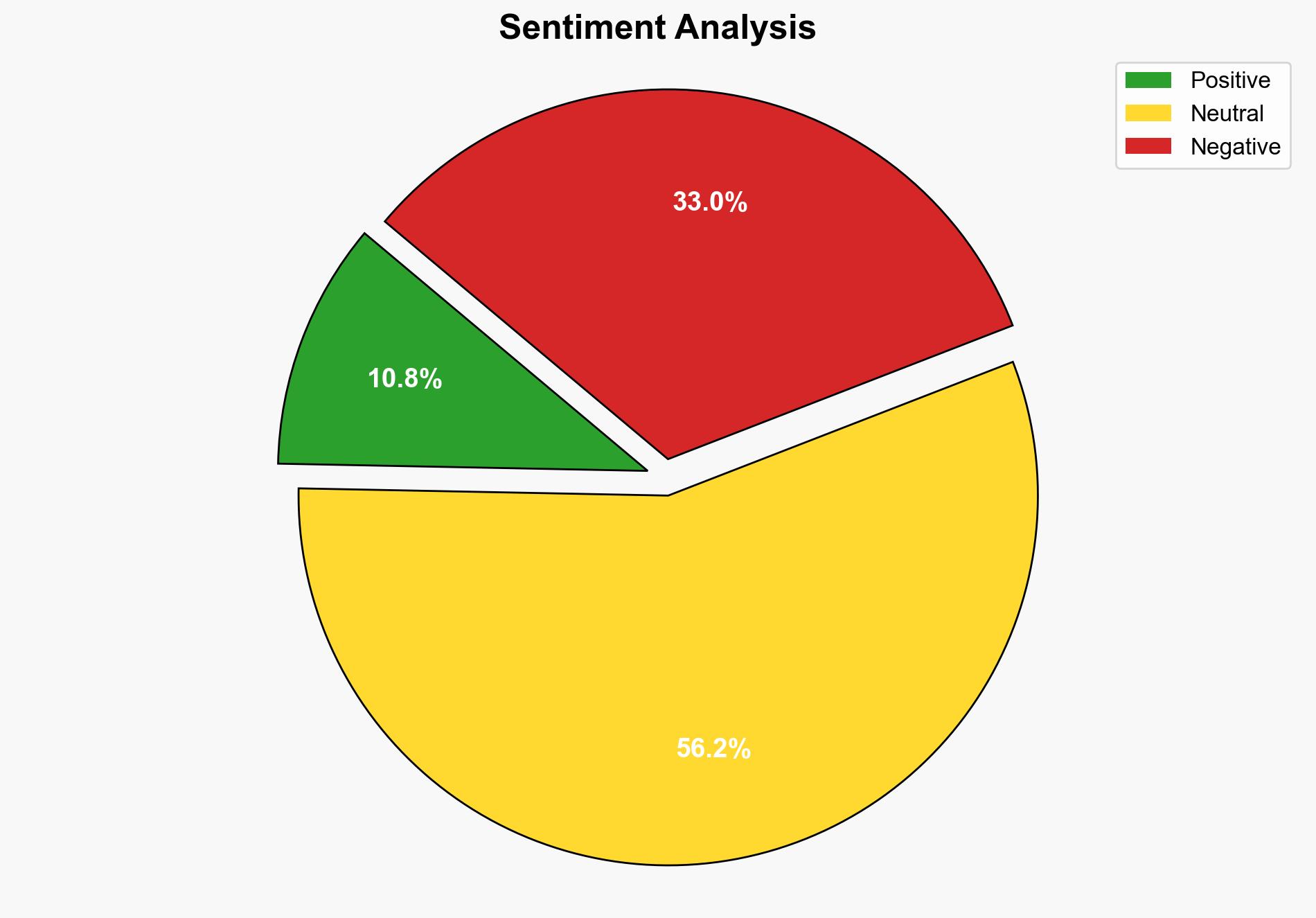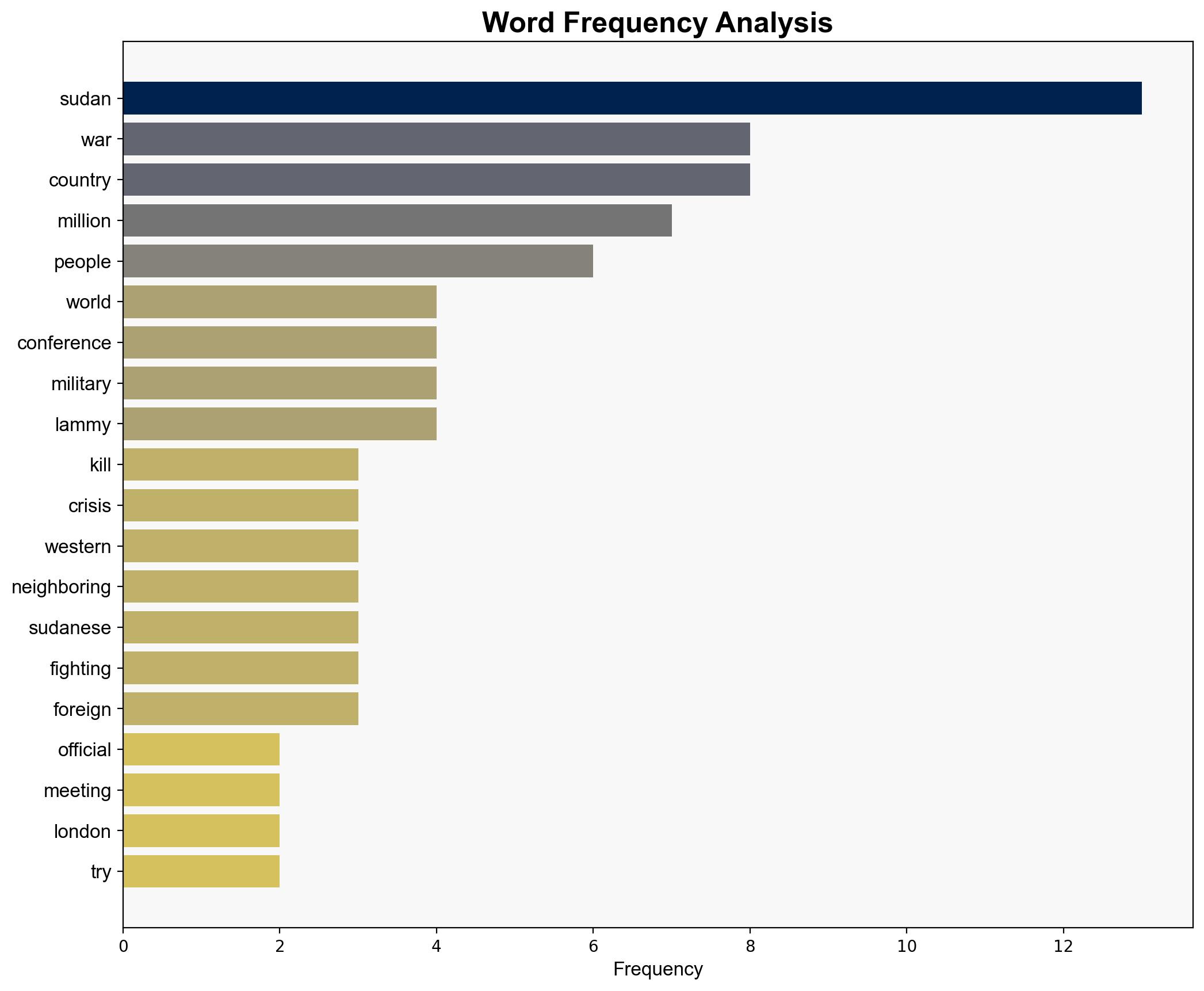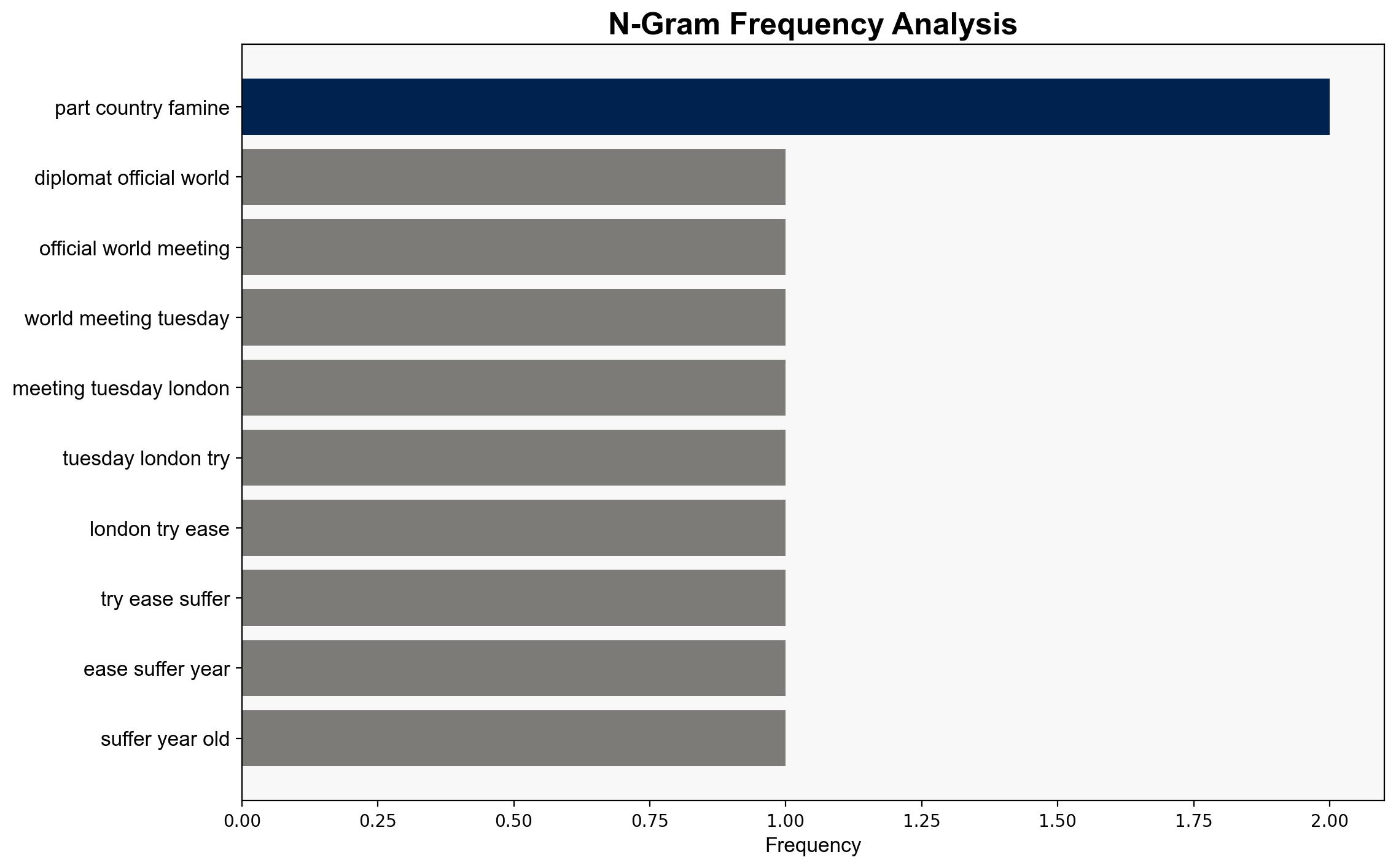Sudan’s civil war has raged for two years and the end is nowhere in sight – NBC News
Published on: 2025-04-15
Intelligence Report: Sudan’s Civil War and Humanitarian Crisis
1. BLUF (Bottom Line Up Front)
The ongoing civil war in Sudan has resulted in a severe humanitarian crisis, with tens of thousands dead and millions displaced. A recent international conference in London aimed to address the humanitarian needs but did not include Sudanese representatives, limiting its potential impact on peace negotiations. The conflict continues to destabilize the region, with significant implications for regional security and migration patterns.
2. Detailed Analysis
The following structured analytic techniques have been applied for this analysis:
General Analysis
The civil war in Sudan, which began on April 15, 2023, has escalated due to tensions between the Sudanese military and the Rapid Support Forces. The conflict has led to widespread violence, particularly in Khartoum and Darfur, resulting in significant casualties and displacement. The international community, represented by diplomats and aid officials, convened in London to address the humanitarian crisis, but the absence of Sudanese parties limits the conference’s ability to influence the conflict directly.
3. Implications and Strategic Risks
The ongoing conflict poses several strategic risks:
- Regional Instability: The conflict threatens to spill over into neighboring countries, exacerbating existing tensions and potentially leading to broader regional conflicts.
- Humanitarian Crisis: With over 14 million displaced and 25 million facing extreme hunger, the humanitarian situation is critical, requiring immediate international intervention.
- Economic Impact: The war has disrupted economic activities, leading to food shortages and increased migration, which could destabilize neighboring economies.
- National Security: The conflict’s continuation could lead to increased migration pressures and security threats to countries in the region and beyond.
4. Recommendations and Outlook
Recommendations:
- Enhance diplomatic efforts to include Sudanese parties in future peace negotiations to facilitate a comprehensive resolution.
- Increase humanitarian aid and logistical support to affected regions to alleviate the immediate crisis.
- Strengthen regional cooperation to manage migration and prevent the spread of conflict.
Outlook:
Best-case scenario: A negotiated ceasefire leads to peace talks, reducing violence and allowing humanitarian aid to reach those in need.
Worst-case scenario: The conflict escalates, further destabilizing the region and increasing the humanitarian toll.
Most likely scenario: Continued sporadic fighting with limited international intervention, prolonging the humanitarian crisis.
5. Key Individuals and Entities
The report references several key individuals and entities involved in the situation:
- David Lammy – Highlighted the need for immediate action to prevent further catastrophe.
- Sudanese Military – Recently regained control over Khartoum, a significant development in the conflict.
- Rapid Support Forces – Continue to control significant areas, including parts of Darfur.
- United Nations – Reports on civilian casualties and humanitarian needs.
- World Food Program – Provides data on hunger and displacement.
- Oxfam – Warns of the regional implications of the humanitarian crisis.




